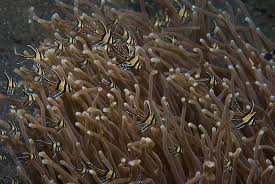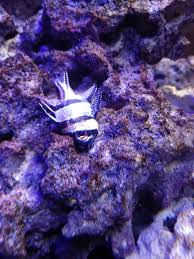
Crown princes have long played critical roles in the history of monarchies around the world. As heirs to the throne, their education and upbringing have been meticulously designed to prepare them for leadership, governance, and maintaining the legacy of their royal families. Historically, the journey of a crown prince was not merely about learning royal etiquette, but rather a comprehensive education that included the study of politics, warfare, diplomacy, philosophy, and cultural affairs. The lessons imparted to them were fundamental not only to their individual growth but to the future of their respective nations. In this article, we explore the various lessons taught to crown princes throughout history, the ways in which these lessons shaped their reigns, and how their experiences resonate today.
1. The Role of the Crown Prince: More Than Just an Heir
The title of crown prince has always carried immense responsibility, with the future of the kingdom often depending on the prince’s ability to rule. While monarchs were typically the supreme rulers, crown princes were trained to succeed them. From a young age, they were exposed to the intricacies of leadership, governance, and the politics that defined their times. The role of the crown prince was not only to inherit power but also to be prepared to maintain stability, uphold tradition, and address the challenges of their era.
Crown princes were expected to embody the ideal qualities of leadership. These included wisdom, strength, fairness, and the ability to inspire loyalty in their subjects. To this end, royal education focused on developing these qualities through various disciplines. Their training was often multifaceted, incorporating philosophy, military strategy, diplomacy, religious studies, and even the arts.
2. The Importance of Education in Preparing for Leadership
The education of crown princes was highly structured and intensive. It often began early in childhood and continued well into their adulthood. Monarchs understood that the future rulers of their realms needed a comprehensive education that would prepare them to handle the complex issues they would face as heads of state. As such, the education of crown princes included a combination of formal schooling, mentorship from experienced advisors, and practical experience.
In ancient China, for example, the education of the crown prince was of utmost importance, as emperors believed that the stability of the empire depended on the capability of their heirs. The lessons taught to crown princes in the Chinese imperial court were rooted in Confucian principles, with a strong emphasis on ethics, governance, and the cultivation of personal virtue. The “Confucian Classics” were a core part of the curriculum, and crown princes were expected to study them in depth. Additionally, crown princes received military training, as emperors believed that a ruler must also be prepared for war, should the need arise.
Similarly, in medieval Europe, the education of crown princes was closely associated with the concept of chivalry. Chivalric codes dictated the ideals of honor, courage, and leadership, and crown princes were expected to master these principles. They were trained in the art of warfare, with emphasis on horsemanship, swordsmanship, and battlefield tactics. Political education also played a central role, as crown princes were tutored in matters of statecraft, diplomacy, and the management of their domains.
The religious training of crown princes was also a significant part of their education. Monarchs often ruled as divinely appointed figures, and their authority was closely tied to religious legitimacy. As a result, crown princes were often expected to receive an education in theology and religious rituals. In many cultures, the crown prince’s relationship with the clergy and religious institutions was crucial for maintaining their power and influence.
3. The Influence of Mentors and Advisors
While the crown prince’s formal education was important, the role of mentors and advisors in shaping their development cannot be overstated. Crown princes were often tutored by wise and experienced individuals, who imparted their knowledge and guided them through the complex issues of governance. These mentors played an instrumental role in shaping the worldview of the crown prince, and their advice was often sought in matters of statecraft, diplomacy, and military strategy.
In Ancient Greece, for instance, the philosopher Aristotle served as a tutor to Alexander the Great, who was the crown prince of Macedon. Aristotle’s teachings had a profound influence on Alexander’s approach to leadership, particularly his ideas on ethics, politics, and the importance of knowledge. Under Aristotle’s tutelage, Alexander was exposed to a broad range of intellectual pursuits, including philosophy, biology, and history. Alexander’s reign, which led to the creation of one of the largest empires in history, reflected many of the lessons he learned from his mentor.
In England, during the Middle Ages, royal advisors played a central role in shaping the education of the crown prince. The relationship between the English crown and the Church was of great importance, and many crown princes received instruction from religious scholars. However, political mentors, such as the regents who governed on behalf of young monarchs, also played a key role in preparing crown princes for future rule.
For example, when Prince Henry VI of England ascended to the throne as a child, his regents, including his uncles, managed the country on his behalf. While the prince was educated in royal duties, politics, and military tactics, his regents ensured that he was prepared to take over the throne when he came of age. The guidance of his mentors and advisors, however, was essential to his early rule, as he was ill-prepared to face the challenges of governance at such a young age.
4. The Lessons of Warfare and Strategy
Throughout history, one of the most important aspects of crown prince education has been military training. Monarchs often believed that an effective ruler must also be a capable military leader. This was particularly true in periods of territorial expansion or when kingdoms faced external threats.
In ancient and medieval times, many crown princes were expected to learn the art of warfare firsthand. They were trained to lead armies into battle, command troops, and develop strategies for defeating their enemies. In addition to formal education in military tactics, crown princes were often required to participate in military campaigns to gain practical experience.
For instance, Napoleon Bonaparte, who would later become Emperor of France, received military training from a young age. He attended the prestigious École Militaire in Paris, where he learned the fundamentals of military strategy and tactics. His education in warfare laid the groundwork for his meteoric rise to power and his eventual establishment of the Napoleonic Empire. Napoleon’s understanding of strategy and battlefield command was instrumental in his success as a military leader.
In Japan, the education of the crown prince often included martial training, particularly in the ways of the samurai. The samurai were expected to be skilled in swordsmanship, archery, and horse-riding. A crown prince, therefore, was trained in these arts to ensure that he could lead his warriors with honor and competence when the time came.
5. Lessons of Diplomacy and Governance
In addition to military training, diplomacy and governance were essential components of the crown prince’s education. Monarchs understood that maintaining peace and forming alliances were just as important as winning battles. Therefore, crown princes were taught the delicate art of diplomacy, negotiation, and governance.
For example, Prince Henry the Navigator of Portugal played a pivotal role in the Age of Exploration. Though he was never king, his strategic vision, understanding of trade, and diplomatic efforts helped Portugal establish a vast empire in Asia, Africa, and South America. Henry’s lessons in diplomacy helped him secure important alliances and establish Portugal’s naval supremacy.
In modern times, the education of crown princes has shifted to include more formal training in law, economics, and international relations. Today, crown princes often study abroad in leading universities and take part in international diplomatic missions. They are exposed to modern governance and often take part in the political life of their countries.
6. The Role of Cultural and Artistic Education
While much of the education of crown princes has focused on governance, warfare, and diplomacy, cultural and artistic education has also played an essential role. Monarchs believed that a ruler who could appreciate art, literature, and culture would be able to foster a prosperous and harmonious kingdom. For this reason, crown princes were often trained in the arts, including music, literature, and visual arts.
One notable example is the education of Prince Albert, consort of Queen Victoria of the United Kingdom. Prince Albert was well-versed in the arts and played a significant role in the cultural life of the British monarchy. His support of the arts and sciences was instrumental in the establishment of the Great Exhibition of 1851, which showcased the advancements of the Industrial Revolution and promoted international cultural exchange.
7. Conclusion: The Enduring Legacy of Crown Prince Education
The lessons imparted to crown princes throughout history have left a lasting legacy on both the rulers themselves and the societies they governed. From warfare and diplomacy to ethics, culture, and governance, the education of crown princes has been integral in shaping the leaders of nations. While the specific lessons learned by crown princes varied across time and place, the overarching theme has always been the preparation for responsible leadership.
In today’s world, the role of crown princes may have evolved, but the fundamental lessons of their education remain relevant. As modern monarchies continue to play symbolic and cultural roles, the education of their heirs ensures that they are prepared to meet the challenges of their time. The enduring importance of royal education underscores the idea that great leaders are made, not born—through careful nurturing, strategic training, and a commitment to service.









